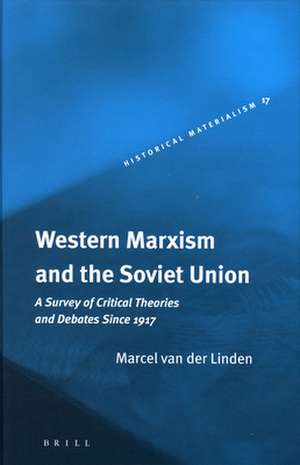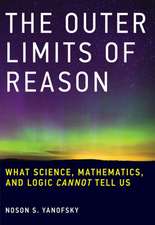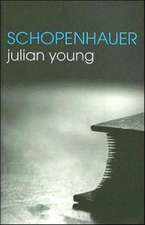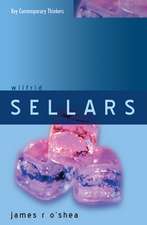Western Marxism and the Soviet Union: A Survey of Critical Theories and Debates Since 1917: Historical Materialism Book Series, cartea 17
Autor Marcel van der Lindenen Limba Engleză Hardback – 21 iun 2007
Din seria Historical Materialism Book Series
-
 Preț: 215.03 lei
Preț: 215.03 lei - 18%
 Preț: 966.97 lei
Preț: 966.97 lei - 18%
 Preț: 990.17 lei
Preț: 990.17 lei - 18%
 Preț: 1092.16 lei
Preț: 1092.16 lei - 18%
 Preț: 1229.68 lei
Preț: 1229.68 lei - 18%
 Preț: 1241.69 lei
Preț: 1241.69 lei - 18%
 Preț: 1190.02 lei
Preț: 1190.02 lei - 18%
 Preț: 893.05 lei
Preț: 893.05 lei - 18%
 Preț: 1401.90 lei
Preț: 1401.90 lei - 18%
 Preț: 928.61 lei
Preț: 928.61 lei - 18%
 Preț: 690.93 lei
Preț: 690.93 lei -
 Preț: 268.72 lei
Preț: 268.72 lei - 18%
 Preț: 674.66 lei
Preț: 674.66 lei - 18%
 Preț: 606.89 lei
Preț: 606.89 lei - 18%
 Preț: 783.83 lei
Preț: 783.83 lei - 18%
 Preț: 584.79 lei
Preț: 584.79 lei - 18%
 Preț: 711.88 lei
Preț: 711.88 lei - 18%
 Preț: 653.06 lei
Preț: 653.06 lei - 18%
 Preț: 531.92 lei
Preț: 531.92 lei - 18%
 Preț: 618.25 lei
Preț: 618.25 lei - 18%
 Preț: 647.76 lei
Preț: 647.76 lei - 18%
 Preț: 710.71 lei
Preț: 710.71 lei - 18%
 Preț: 922.25 lei
Preț: 922.25 lei - 18%
 Preț: 810.75 lei
Preț: 810.75 lei - 18%
 Preț: 996.79 lei
Preț: 996.79 lei - 18%
 Preț: 815.23 lei
Preț: 815.23 lei - 18%
 Preț: 1506.61 lei
Preț: 1506.61 lei - 18%
 Preț: 852.64 lei
Preț: 852.64 lei - 18%
 Preț: 645.67 lei
Preț: 645.67 lei - 18%
 Preț: 781.47 lei
Preț: 781.47 lei - 18%
 Preț: 615.24 lei
Preț: 615.24 lei - 18%
 Preț: 1155.48 lei
Preț: 1155.48 lei - 18%
 Preț: 1063.00 lei
Preț: 1063.00 lei - 18%
 Preț: 867.10 lei
Preț: 867.10 lei - 48%
 Preț: 1092.66 lei
Preț: 1092.66 lei - 36%
 Preț: 765.88 lei
Preț: 765.88 lei - 18%
 Preț: 648.19 lei
Preț: 648.19 lei - 18%
 Preț: 759.38 lei
Preț: 759.38 lei - 18%
 Preț: 716.43 lei
Preț: 716.43 lei - 18%
 Preț: 671.15 lei
Preț: 671.15 lei - 18%
 Preț: 671.56 lei
Preț: 671.56 lei - 18%
 Preț: 760.94 lei
Preț: 760.94 lei - 18%
 Preț: 1012.79 lei
Preț: 1012.79 lei - 18%
 Preț: 817.26 lei
Preț: 817.26 lei - 18%
 Preț: 656.87 lei
Preț: 656.87 lei - 18%
 Preț: 1298.20 lei
Preț: 1298.20 lei - 18%
 Preț: 791.88 lei
Preț: 791.88 lei - 18%
 Preț: 971.69 lei
Preț: 971.69 lei - 18%
 Preț: 635.15 lei
Preț: 635.15 lei
Preț: 686.10 lei
Preț vechi: 836.71 lei
-18% Nou
Puncte Express: 1029
Preț estimativ în valută:
131.30€ • 136.57$ • 108.40£
131.30€ • 136.57$ • 108.40£
Carte indisponibilă temporar
Doresc să fiu notificat când acest titlu va fi disponibil:
Se trimite...
Preluare comenzi: 021 569.72.76
Specificații
ISBN-13: 9789004158757
ISBN-10: 9004158758
Pagini: 380
Dimensiuni: 160 x 240 x 28 mm
Greutate: 0.84 kg
Editura: Brill
Colecția Brill
Seria Historical Materialism Book Series
ISBN-10: 9004158758
Pagini: 380
Dimensiuni: 160 x 240 x 28 mm
Greutate: 0.84 kg
Editura: Brill
Colecția Brill
Seria Historical Materialism Book Series
Public țintă
All those interested in Marxism, the history of Marxism, and the history of radical intellectuals.Cuprins
Preface
1. Introduction
2. From the October Revolution to the Stalin era (1917–29)
2.i. Kautsky and the Bolsheviks: three controversies
Kautsky versus Lenin
Kautsky versus Trotsky
Kautsky versus Bukharin
2.ii. Levi, Luxemburg and the Bolsheviks: criticism and counter-criticism
Levi
Luxemburg
Interpretations
Zetkin, Lukács, and Kautsky
2.iii. Left-communist criticisms
Gorter, Pannekoek, Rühle
Korsch
2.iv. Summary
3. From Stalin’s ‘Great Leap Forwards’ to the ‘Great Patriotic War’ (1929–41)
3.i. State capitalism
Miasnikov
Adler
Wagner
Worrall
Pollock
3.ii. Trotsky: the theory of the degenerated workers’ state
3.iii. Theories of a new mode of production
Laurat
Weil
Rizzi
Burnham
Shachtman
Carter
Pedrosa
Hilferding
3.iv. Criticism
Criticism of theories of state capitalism
Criticisms of the theory of the degenerated workers’ state
Criticisms of theories of a new mode of production
3.v. Summary
4. From the ‘Great Patriotic War’ to the Structural Assimilation of Eastern Europe (1941–56)
4.i. The theory of the degenerated workers’ state
4.ii. Theories of state capitalism
Grandizo/Péret
James/Dunayevskaya
Castoriadis/Lefort
Cliff
Bordiga
4.iii. Theories of a new mode of production
Guttmann
4.iv. Interpretations ‘without labels
Sternberg
Cycon
Frölich
Kofler
4.v. Debates and mutual criticism
The Deutscher debate
Responses to Burnham
Mandel’s critique of ‘state capitalism’ and ‘bureaucratic collectivism’
4.vi. Summary
5. From the Twentieth Congress of the CPSU to the Repression of the ‘Prague Spring’ (1956–68)
5.i. Theories of state capitalism
The current around Cliff
5.ii. The theory of the degenerated workers’ state
5.iii. Theories of a new mode of production
Djilas
Kuron/Modzelewski
5.iv. Theories ‘without labels’
Wittfogel and his critics
Marcuse
Rosdolsky
Boeuve
5.v. Summary
6. From the Repression of the ‘Prague Spring’ to Perestroika (1968–85)
6.i. Theories of state capitalism
Cliff’s current
Mattick
Maoist variants: Holmberg, Bettelheim and his critics
The workerist [operaisti] variant
6.ii. The theory of the degenerated workers’ state
Elaborations
Criticisms
Mohun’s revision
6.iii. Theories of bureaucratic collectivism
Stojanovic
Critical Rizzi-supporters: Carlo and Melotti
Fantham/Machover
Sweezy
6.iv. Theories of the new mode of production without a (consolidated) ruling class
Pioneers: Arthur, Naville, Alvater/Neusüss
The debate in Links
Dutschke and his critics
Zimin
Digression: Sohn-Rethel, Damus and the ‘social synthesis’
Bahro and his critics
Schmiederer
Ticktin and his critics
The Hungarian ‘New Left’: Bence/Kis (Rakovski), Konrád/Szelényi, Fehér/Heller/Márkus
Campeanu
6.v. Summary
7. The Collapse and Its Aftermath: From 1985 to the Present
7.i. Theories of (state) capitalism
The current around Cliff and its critics
Daum and his critics
Sapir
Chattopadyay and his critics
Fernandez
‘Aufheben”
Sandemose
Resnick & Wolff and their critics
7.ii. The theory of the degenerated workers’ state
7.iii. Theories of bureaucratic collectivism
Loone
Brenner and his critics
Finger
7.iv. Theories of a new mode of production without a (consolidated) ruling class
Füredi
Ticktin and his critics
Cox
Arthur
Behrens
Campeanu
7.v. Summary
8. In Lieu of a Conclusion
9. Meta-theoretical note
References
Index
1. Introduction
2. From the October Revolution to the Stalin era (1917–29)
2.i. Kautsky and the Bolsheviks: three controversies
Kautsky versus Lenin
Kautsky versus Trotsky
Kautsky versus Bukharin
2.ii. Levi, Luxemburg and the Bolsheviks: criticism and counter-criticism
Levi
Luxemburg
Interpretations
Zetkin, Lukács, and Kautsky
2.iii. Left-communist criticisms
Gorter, Pannekoek, Rühle
Korsch
2.iv. Summary
3. From Stalin’s ‘Great Leap Forwards’ to the ‘Great Patriotic War’ (1929–41)
3.i. State capitalism
Miasnikov
Adler
Wagner
Worrall
Pollock
3.ii. Trotsky: the theory of the degenerated workers’ state
3.iii. Theories of a new mode of production
Laurat
Weil
Rizzi
Burnham
Shachtman
Carter
Pedrosa
Hilferding
3.iv. Criticism
Criticism of theories of state capitalism
Criticisms of the theory of the degenerated workers’ state
Criticisms of theories of a new mode of production
3.v. Summary
4. From the ‘Great Patriotic War’ to the Structural Assimilation of Eastern Europe (1941–56)
4.i. The theory of the degenerated workers’ state
4.ii. Theories of state capitalism
Grandizo/Péret
James/Dunayevskaya
Castoriadis/Lefort
Cliff
Bordiga
4.iii. Theories of a new mode of production
Guttmann
4.iv. Interpretations ‘without labels
Sternberg
Cycon
Frölich
Kofler
4.v. Debates and mutual criticism
The Deutscher debate
Responses to Burnham
Mandel’s critique of ‘state capitalism’ and ‘bureaucratic collectivism’
4.vi. Summary
5. From the Twentieth Congress of the CPSU to the Repression of the ‘Prague Spring’ (1956–68)
5.i. Theories of state capitalism
The current around Cliff
5.ii. The theory of the degenerated workers’ state
5.iii. Theories of a new mode of production
Djilas
Kuron/Modzelewski
5.iv. Theories ‘without labels’
Wittfogel and his critics
Marcuse
Rosdolsky
Boeuve
5.v. Summary
6. From the Repression of the ‘Prague Spring’ to Perestroika (1968–85)
6.i. Theories of state capitalism
Cliff’s current
Mattick
Maoist variants: Holmberg, Bettelheim and his critics
The workerist [operaisti] variant
6.ii. The theory of the degenerated workers’ state
Elaborations
Criticisms
Mohun’s revision
6.iii. Theories of bureaucratic collectivism
Stojanovic
Critical Rizzi-supporters: Carlo and Melotti
Fantham/Machover
Sweezy
6.iv. Theories of the new mode of production without a (consolidated) ruling class
Pioneers: Arthur, Naville, Alvater/Neusüss
The debate in Links
Dutschke and his critics
Zimin
Digression: Sohn-Rethel, Damus and the ‘social synthesis’
Bahro and his critics
Schmiederer
Ticktin and his critics
The Hungarian ‘New Left’: Bence/Kis (Rakovski), Konrád/Szelényi, Fehér/Heller/Márkus
Campeanu
6.v. Summary
7. The Collapse and Its Aftermath: From 1985 to the Present
7.i. Theories of (state) capitalism
The current around Cliff and its critics
Daum and his critics
Sapir
Chattopadyay and his critics
Fernandez
‘Aufheben”
Sandemose
Resnick & Wolff and their critics
7.ii. The theory of the degenerated workers’ state
7.iii. Theories of bureaucratic collectivism
Loone
Brenner and his critics
Finger
7.iv. Theories of a new mode of production without a (consolidated) ruling class
Füredi
Ticktin and his critics
Cox
Arthur
Behrens
Campeanu
7.v. Summary
8. In Lieu of a Conclusion
9. Meta-theoretical note
References
Index
Notă biografică
Marcel van der Linden (1952) is Research Director of the International Institute of Social History and Professor in the History of Social Movements at the University of Amsterdam.
Recenzii
“The amount of sources the author has studied is staggering...the book [has] an encyclopedic value and [is] accessible to all scholars interested in political history.”
— Martin Kragh, Stockholm School of Economics
“Since the Russian experience is still used to vilify the idea of socialism, the debate remains relevant. Van der Linden...has now produced a comprehensive scholarly account of the arguments.”
— Ian Birchall, London Socialist Historians Group
— Martin Kragh, Stockholm School of Economics
“Since the Russian experience is still used to vilify the idea of socialism, the debate remains relevant. Van der Linden...has now produced a comprehensive scholarly account of the arguments.”
— Ian Birchall, London Socialist Historians Group




